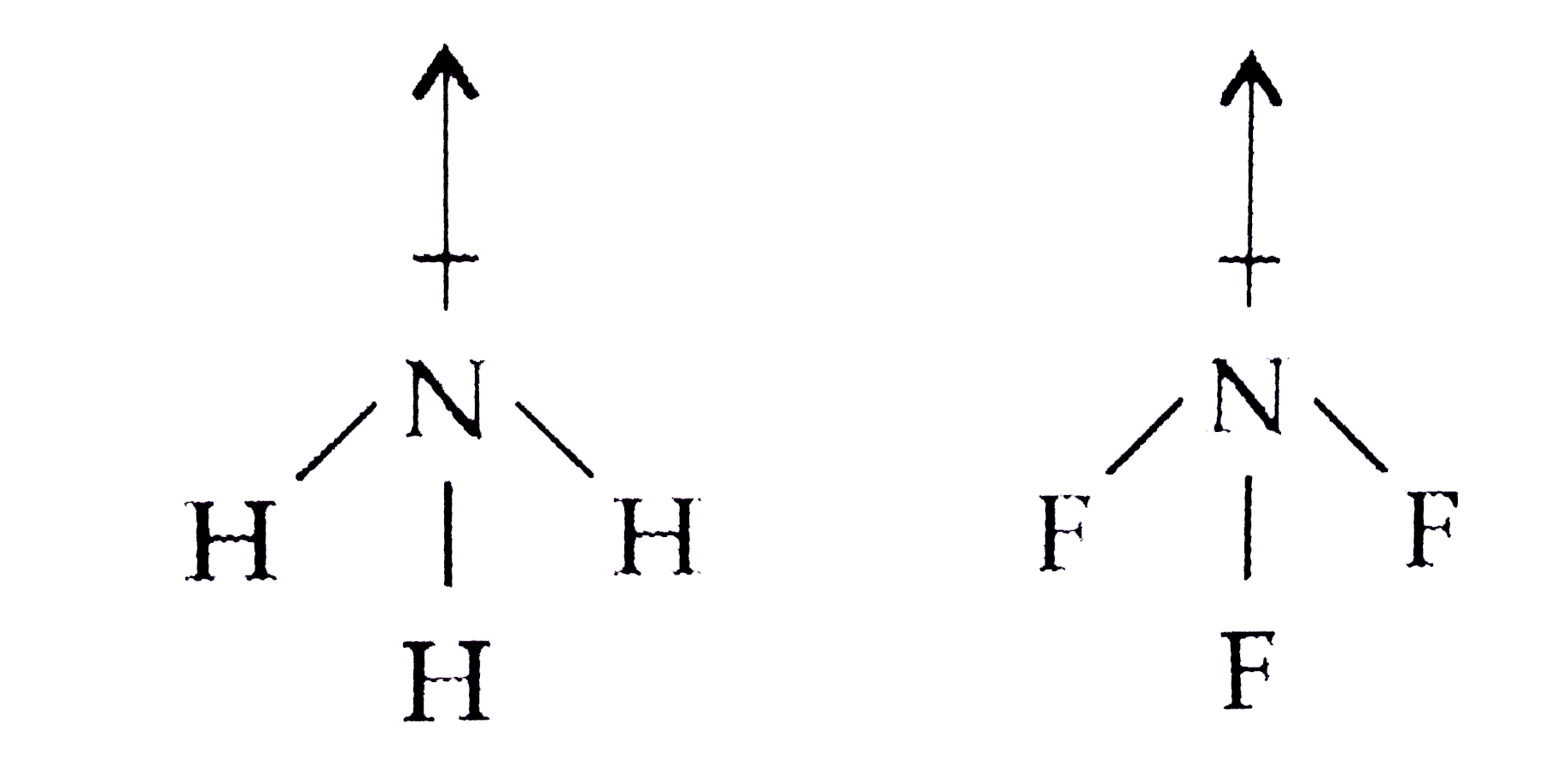The dipoles moment of NF3 is less than NH3 because
NH3 forms associated molecules
F is more reactive than H
The resultant of bond polarity is less
The resultant of individual polarities is opposed by the polarity of lone pair in NF3
The correct Answer is:D
Step by step video, text & image solution for The dipoles moment of NF_(3) is less than NH_(3) because by Chemistry experts to help you in doubts & scoring excellent marks in Class 12 exams.
Updated on:21/07/2023Topper's Solved these Questions
- 15TH GROUP ELEMENTSBOOK - NARAYNACHAPTER - 15TH GROUP ELEMENTSEXERCISE - Level-IV
30 Videos
- 15TH GROUP ELEMENTSBOOK - NARAYNACHAPTER - 15TH GROUP ELEMENTSEXERCISE - Level-I (H.W)
36 Videos
- 15TH GROUP ELEMENTSBOOK - NARAYNACHAPTER - 15TH GROUP ELEMENTSEXERCISE - Level-II (C.W)
49 Videos
- ELECTRO CHEMISTRYBOOK - NARAYNACHAPTER - ELECTRO CHEMISTRYEXERCISE - SUBJECTIVE QUESTIONS
48 Videos
- 16 TH GROUP ELEMENTS BOOK - NARAYNACHAPTER - 16 TH GROUP ELEMENTS EXERCISE - EXERCISE - 4 NCERT EXAMPLERS/H.O.T.S.
18 Videos
Similar Questions
Knowledge Check
The dipoles moment of NF3 is less than NH3 because
ANH3 forms associated moleculesBF is more reactive then HCThe resultant of bond polarity is lessDThe resultant in individual polarities is opposed by the polarity of lone pairDipole moment of NF3 is smaller than :
ANH3BCO2CBF3DCCl4Dipole moment of NF3 is smaller than :
ANH3BCO2CBF3DCCl4
The dipole moment of CH3F is greater than that of CH3Cl.
View SolutionAlthough F is more electronegative than H , then
resultant dipole moment of NH3 is much moe than
that of NF3 . It can be explained as

View SolutionAssertion : Dipole moment of NF3 is less than that of NH3.
Reason : polarity of N−F bond is less than that of N−H bond.
View SolutionStatement-1 : Dipole moment of NF3 is less than that of NH3.
Statement-2 : Polarity of N−F bond is less than that of N−H bond.
View SolutionStatement : The dipole moment of NH3 is less than NF3 .
Explanation : The lone pair preesent on N shows additive nature to N−H vector whereas it is subtractive to N−F vectro .
View Solution
